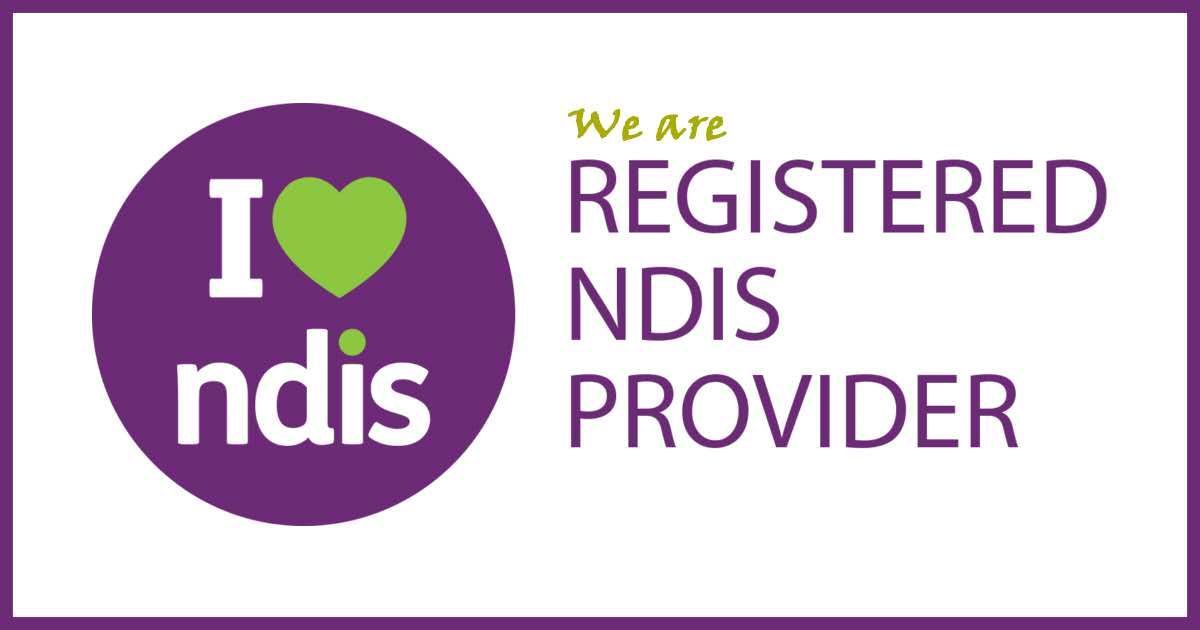Building a Stronger Healthcare Team: How Woodpecker Nursing Agency Enhances Facility Dynamics
In the ever-evolving landscape of healthcare, building a stronger healthcare team is paramount. We understand that healthcare facilities face challenges in maintaining optimal staffing levels to ensure patient care remains uncompromised. This is where nursing agencies, like Woodpecker Nursing Agency, play a crucial role. They provide a reservoir of qualified and trained nursing professionals, enriching facility dynamics and ensuring that healthcare team building is both efficient and effective.
By partnering with agencies such as Woodpecker Nursing Agency, facilities can address staffing shortages head-on, enabling a flexible and dynamic healthcare provision. In this article, we explore how these partnerships not only enhance facility dynamics but also contribute significantly to healthcare team building. We'll look into the multifaceted benefits of engaging with nursing agencies, from filling immediate staffing gaps to offering long-term staffing solutions that bolster the healthcare sector.
The Role of Nursing Agencies in Strengthening Healthcare Teams
In the realm of healthcare, the strength and effectiveness of teams can significantly influence patient safety and outcomes. With the complexity of specialised care and the presence of co-morbidities on the rise, it's becoming increasingly necessary to enhance the teamwork skills of healthcare professionals. This is where nursing agencies, like Woodpecker Nursing Agency, step in. They provide hospitals and healthcare facilities with qualified nurses and midwives, effectively addressing staffing shortages and ensuring that patient care does not suffer due to a lack of skilled personnel.
One of the key benefits of sourcing staff from nursing agencies is the flexibility it offers. Healthcare establishments can adjust staffing levels in response to fluctuating patient demands, ensuring that quality care is maintained without overburdening permanent staff. Moreover, agency nurses often bring a diverse set of skills and perspectives to the table, adding valuable insights that can enrich the existing team. Their specialised expertise can be particularly crucial in scenarios where a facility finds itself short-staffed and in urgent need of specific skills to care for patients adequately.
To further bolster team effectiveness within healthcare organisations, three types of interventions have been identified: training, tools, and organisational (re)design. Training interventions are subdivided into principle-based training (such as CRM and TeamSTEPPS), simulation-based training, and general team training. Both principle-based and simulation-based training have shown significant promise in enhancing team functioning, offering practical pathways for healthcare teams to achieve their improvement goals. These interventions not only equip teams with the necessary skills to work cohesively but also foster an environment where continuous learning and development are encouraged, thereby elevating the overall standard of patient care.
Enhancing Facility Dynamics with Qualified Staffing
In our pursuit to enhance facility dynamics through qualified staffing, we've discovered the invaluable role that agency nurses play in providing flexibility and expertise to healthcare establishments. Here’s how they make a difference:
- Flexibility and Adaptability: Agency nurses are pivotal in enabling facilities to adjust their staffing levels in response to fluctuating patient demand. This agility ensures that patient care remains uninterrupted and of high quality, regardless of the circumstances. Whether it's a sudden influx of patients or a need for specialised care, having access to a pool of qualified professionals, including Registered Nurses and Clinical Nurse Consultants, allows healthcare facilities to respond with the required staffing promptly.
- Specialised Skills on Demand: The diversity of skills that agency nurses bring to a facility cannot be overstated. From Clinical Care Co-Ordinators to Endorsed Enrolled Nurses and even Dental Nurses, these professionals offer a breadth of expertise that can be particularly beneficial in situations where a facility is short-staffed. This access to specialised knowledge on an as-needed basis is crucial for providing comprehensive care to patients, especially in high-stress periods or when facing a lack of specific expertise among existing staff.
- Operational Efficiency and Quality Care: Partnering with nursing agencies not only alleviates the administrative burden of recruitment but also ensures that staffing solutions are customised to meet the specific needs of a facility. This streamlined approach to staffing contributes to operational efficiency, allowing healthcare facilities to focus on their primary goal: delivering quality patient care. Moreover, the rigorous screening and training processes undertaken by agencies guarantee that all professionals meet the necessary legal and ethical standards, ensuring that patients receive the best possible care. Additionally, the supply of temporary staff during peak periods helps in reducing burnout among permanent staff, thereby enhancing the overall work environment and promoting a positive culture within healthcare establishments.
By integrating agency staff into our teams, we've seen firsthand the benefits of improved patient-to-staff ratios, specialised expertise, and improved continuity of care. This partnership not only supports our healthcare professionals but also significantly contributes to the well-being and outcomes of our patients, making it an essential strategy in today's healthcare landscape.
Addressing Staffing Shortages in Australian Healthcare
In addressing the staffing shortages within Australian healthcare, it's crucial to acknowledge the significant impact these shortages have on patient care. Facilities often find themselves understaffed, leading to higher patient mortality rates, longer hospital stays, and an increased risk of hospital-acquired infections. This situation is particularly dire in rural areas, where healthcare facilities struggle to attract and retain skilled professionals. Nursing agencies like Woodpecker Nursing Agency play a vital role in bridging this gap, offering staffing solutions that are both flexible and responsive to the needs of healthcare facilities across the country.
- Rural and Remote Support: Agencies such as First Choice Care (FCC) and Carestaff specialise in providing nurses for rural and remote contracts, not only in Queensland, Northern Territory, and New South Wales but across Australia. This support is critical in areas where healthcare services are most needed yet hardest to staff. By providing travel opportunities and fostering a sense of community among their staff through social media, newsletters, and support resources, these agencies ensure that nurses are well-prepared and motivated for their roles, regardless of location.
- Flexibility and Diversity: The flexibility offered by nursing agencies is unparalleled. Nurses can choose their shifts, hours, and work locations, allowing for a work-life balance that is often difficult to achieve in traditional healthcare roles. This flexibility also extends to the healthcare facilities themselves, which can scale staffing levels up or down based on patient demand. Furthermore, the diversity and inclusion efforts within the healthcare workforce, supported by agencies, ensure that the culturally diverse communities across Australia receive care that is sensitive and appropriate to their needs.
The Australian healthcare sector is facing a crisis exacerbated by the COVID-19 pandemic, with a projected shortfall of over 200,000 full-time care workers by 2050. This includes more than 100,000 nurses and over 2700 doctors in the next three years alone. To combat this, innovative solutions such as "career laddering" and partnerships between education providers, accreditation bodies, and health services are being considered. These initiatives aim to streamline the pathway from education to employment in healthcare, ensuring that the future workforce is not only larger but more skilled and evenly distributed across both geography and disciplines. With the support of state and federal government programs, including increased funding and skilled migration quotas, there's a concerted effort to secure a steady pipeline of talent into the healthcare sector. This multifaceted approach is essential in addressing the staffing shortages that threaten the quality of patient care in Australia.
The Benefits of Partnering with Nursing Agencies
Partnering with nursing agencies like Woodpecker Nursing Agency offers a multitude of benefits for healthcare facilities, significantly enhancing their operational efficiency and quality of patient care. By addressing staffing shortages, these agencies ensure that healthcare facilities can maintain optimal staffing levels, thus preventing any compromise in patient care due to insufficient staffing. Here's a closer look at the advantages:
- Time and Cost Savings: The recruitment, screening, and training processes are handled efficiently by nursing agencies, which means healthcare facilities can save considerable time and resources. This streamlined approach ensures that only highly competent professionals are placed, ready to hit the ground running without the need for extensive onboarding.
- Reduced Administrative Burden: Nursing agencies take on the responsibility for a range of administrative functions, including payroll, scheduling, and compliance with healthcare regulations. This alleviation of administrative tasks allows healthcare facilities to focus more on patient care and less on paperwork.
- Flexibility and Diversity: Agency nurses bring a wealth of diversity and specialisation, offering healthcare facilities access to a broad spectrum of skills and expertise. This flexibility is crucial in adapting to fluctuating patient demands and filling specialised roles on short notice. Moreover, agency nurses enjoy the freedom to choose their hours and shifts, contributing to a more satisfied and motivated workforce.
The partnership also fosters a dynamic work environment that benefits both healthcare facilities and nursing professionals:
- Networking and Professional Development: Working in various healthcare settings exposes agency nurses to new challenges and learning opportunities, enhancing their career development. This exposure broadens their networking circle, opening doors to a plethora of opportunities within the healthcare sector.
- Exposure to New Technologies and Practices: Agency nurses frequently encounter different equipment and state-of-the-art technologies across various healthcare settings. This experience is invaluable, keeping them abreast of the latest in healthcare innovation and practices, which they can then bring to each new role they undertake.
- Tailored Support and No Additional Workload: Nursing agencies provide around-the-clock, tailored support to their workforce, including specialised training programs that can enhance nurses' salaries and designations. Importantly, agency nurses are shielded from the additional workload that often falls on the shoulders of permanent staff, allowing them to focus solely on patient care.
In conclusion, the collaboration between healthcare facilities and nursing agencies introduces a level of operational flexibility, efficiency, and quality of care that is critical in today's fast-paced healthcare environment. This partnership not only supports the well-being of patients but also nurtures a positive and dynamic work culture for healthcare professionals.
Future Trends and the Role of Nursing Agencies
As we look towards the future, the role of nursing agencies in healthcare staffing is set to evolve significantly, driven by technological advancements and changing workforce dynamics. Here are some key trends and innovations shaping the industry:
- Emerging Technologies: Artificial Intelligence (AI) and Machine Learning (ML) are revolutionising the recruitment process, making it more efficient by matching healthcare professionals with suitable job openings. This not only streamlines the hiring process but also ensures a better fit between the candidate's skills and the healthcare facility's needs. Predictive analytics is another game-changer, aiding in forecasting staffing requirements and reducing turnover rates by identifying potential issues before they become problematic.
- Focus on Specialised Roles and Flexibility: There's a growing demand for specialists in telemedicine, geriatric care, mental health services, and emergency response. This is coupled with a shift towards more flexible working arrangements, reflecting healthcare professionals' desire for roles that offer a better work-life balance. This includes part-time positions, flexible hours, and remote work opportunities. Nursing agencies are adapting to these changes by offering a wider range of specialised roles and accommodating the need for flexibility.
- Investment in Workforce Development: Healthcare providers are increasingly recognising the importance of investing in their workforce. This includes enhancing training and professional development opportunities to attract and retain top talent. Continuous learning and upskilling are becoming integral to healthcare staffing, ensuring that the workforce is equipped to meet the challenges of modern healthcare delivery. This emphasis on development is crucial for keeping pace with the rapid integration of technology into healthcare services, necessitating a workforce that is not only skilled in traditional medical practices but also adept at using digital health tools.
These trends highlight the dynamic nature of the healthcare staffing industry and the crucial role that nursing agencies like Woodpecker Nursing Agency play in not only addressing immediate staffing needs but also shaping the future of healthcare delivery. By leveraging technology, focusing on specialised roles, and investing in workforce development, nursing agencies are at the forefront of ensuring that healthcare facilities are equipped with the skilled professionals needed to provide high-quality care in an ever-evolving landscape.
Throughout this discussion, we have illuminated the vital role that nursing agencies, particularly Woodpecker Nursing Agency, play in fortifying healthcare teams and enhancing facility dynamics. The partnership between healthcare facilities and nursing agencies not only addresses immediate staffing shortages but also fosters a culture of flexibility, expertise, and continuous improvement. This synergy is pivotal in ensuring that healthcare delivery remains both efficient and effective, directly contributing to improved patient outcomes and staff satisfaction.
Looking ahead, the evolving role of nursing agencies signifies a promising shift towards a more responsive and adaptable healthcare landscape. Emphasising the importance of ongoing professional development, embracing emerging technologies, and accommodating the growing demand for specialised roles, nursing agencies are instrumental in shaping the future of healthcare. Collaboratively, these efforts ensure that healthcare facilities are well-equipped to meet the challenges of an ever-changing healthcare environment, ultimately refining the quality of care extended to patients across the board.













